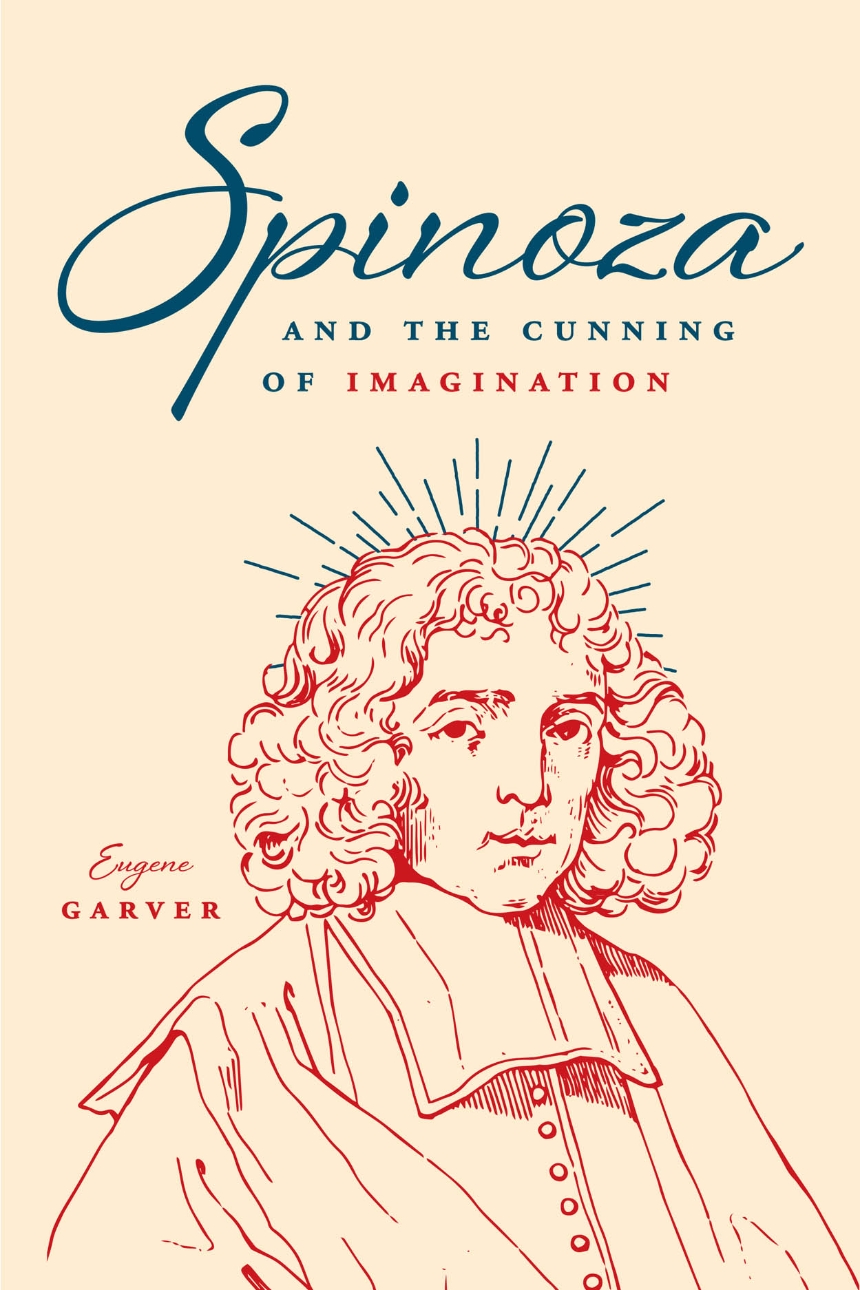Spinoza and the Cunning of Imagination
Spinoza’s Ethics, and its project of proving ethical truths through the geometric method, have attracted and challenged readers for more than three hundred years. In Spinoza and the Cunning of Imagination, Eugene Garver uses the imagination as a guiding thread to this work. Other readers have looked at the imagination to account for Spinoza’s understanding of politics and religion, but this is the first inquiry to see it as central to the Ethics as a whole—imagination as a quality to be cultivated, and not simply overcome.
Spinoza initially presents imagination as an inadequate and confused way of thinking, always inferior to ideas that adequately represent things as they are. It would seem to follow that one ought to purge the mind of imaginative ideas and replace them with rational ideas as soon as possible, but as Garver shows, the Ethics don’t allow for this ultimate ethical act until one has cultivated a powerful imagination. This is, for Garver, “the cunning of imagination.” The simple plot of progress becomes, because of the imagination, a complex journey full of reversals and discoveries. For Garver, the “cunning” of the imagination resides in our ability to use imagination to rise above it.
Spinoza initially presents imagination as an inadequate and confused way of thinking, always inferior to ideas that adequately represent things as they are. It would seem to follow that one ought to purge the mind of imaginative ideas and replace them with rational ideas as soon as possible, but as Garver shows, the Ethics don’t allow for this ultimate ethical act until one has cultivated a powerful imagination. This is, for Garver, “the cunning of imagination.” The simple plot of progress becomes, because of the imagination, a complex journey full of reversals and discoveries. For Garver, the “cunning” of the imagination resides in our ability to use imagination to rise above it.
320 pages | 6 x 9 | © 2018
Philosophy: Ethics, General Philosophy, History and Classic Works, Philosophy of Religion
Reviews
Table of Contents
Acknowledgments
Introduction
First Part
Chapter One
Adequate Ideas Are Infinite Modes
Chapter Two
Our Knowledge of God and Its Place in Ethics
Chapter Three
Spinoza’s Will to Power: How Does the Conatus Become a Desire to Increase Power?
Chapter Four
False Pleasures and Romantic Love
Second Part
Chapter Five
Conflicts among Emotions, among Ideas, and among People
Chapter Six
Hilarity and the Goods of Mind and Body
Chapter Seven
The Strength of the Emotions and the Power of the Intellect
Chapter Eight
Ethics and the Ethics: How Does Reason Become Practical?
Notes
Index
Introduction
First Part
Chapter One
Adequate Ideas Are Infinite Modes
Chapter Two
Our Knowledge of God and Its Place in Ethics
Chapter Three
Spinoza’s Will to Power: How Does the Conatus Become a Desire to Increase Power?
Chapter Four
False Pleasures and Romantic Love
Second Part
Chapter Five
Conflicts among Emotions, among Ideas, and among People
Chapter Six
Hilarity and the Goods of Mind and Body
Chapter Seven
The Strength of the Emotions and the Power of the Intellect
Chapter Eight
Ethics and the Ethics: How Does Reason Become Practical?
Notes
Index
